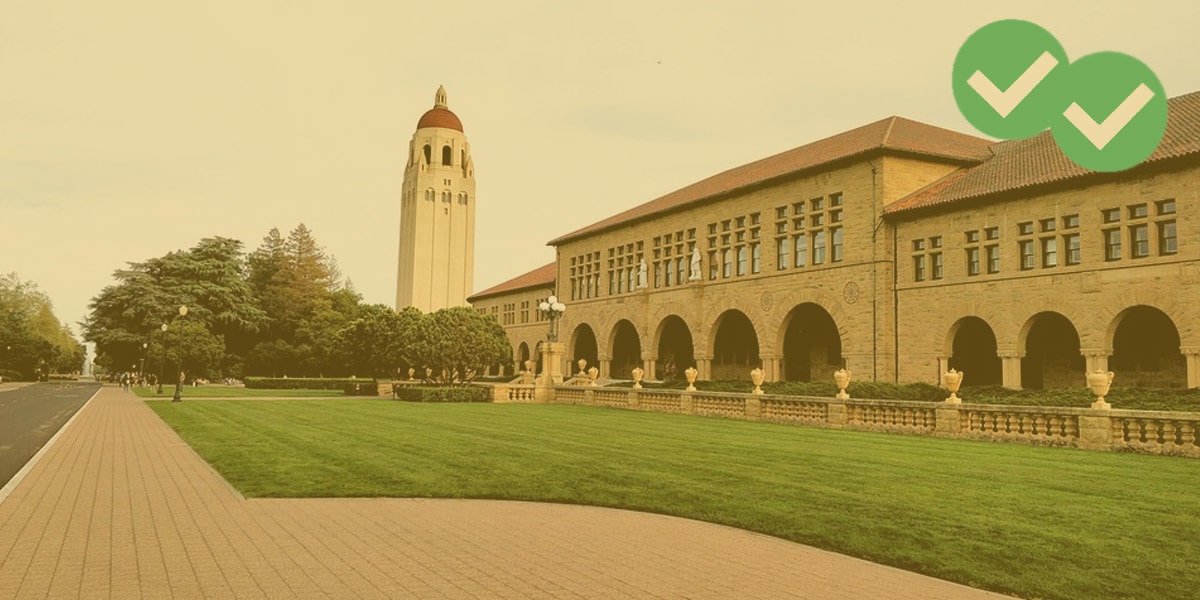I hate to break it to you, but when we talk about the “best Constitutional law schools,” the reality is that there isn’t a huge separation between most Constitutional law programs at any law school in the United States. Since it’s a required class (and a very important one at that!), and most students really look forward to taking it, most law schools have a pretty well-known professor teaching it.
Okay, I might be exaggerating a bit. Or maybe a lot. But you can usually count on ConLaw professors being among the best a law school has to offer.
Constitutional law was fun. You get to study the bedrock of the US legal system, and you come away from the class with a much, much better understanding of how the government runs.
That being said, if you want to go deeper than that first class, you’ll likely want to go to a law school that goes beyond a Constitutional Law II level course.
While it wasn’t really easy to pick law schools to highlight, I think I found three that will paint a good picture of what to expect from Constitutional law programs country-wide.
You see, what really matters when choosing a law school that focuses on any subject, is what you want to do afterwards.
Constitutional Law Careers
If you’re like me, you’ll already know where you want to head. However, if you’re like 99 percent of the law students out there, you’re not going to have any clue.
But, if you want to get into Constitutional law, know that this subject is very, very broad. Here’s a few jobs that you might think about pursuing. Keep in mind that this is just a small list. It doesn’t cover everything.
- Criminal Defense Attorney or Prosecutor: these guys deal with Constitutional issues every single day, whether it’s about the 6th amendment right to counsel, or the 4th amendment rights around unlawful searches and seizures.
- Appellate Attorney: attorneys that deal with appeals have the opportunity to argue about whether or not statutes or actions by state entities are constitutional. It’s a different animal than being a trial attorney for sure.
- Civil Rights Attorney: Civil rights attorneys were staples in the modern civil rights movements of the 60s and 70s, as well as the more recent civil rights battles. Sometimes they work for nonprofits, like the ACLU, or they work with law firms. At the end of the day, though, they are hard at work, trying to help the government protects the rights of its citizens.
- Professor or Researcher: A lot of former attorneys end up here after never really being able to scratch their Constitutional law itch. Or perhaps they had a long career as a civil rights attorney and wanted to live a less stressful life. Either way, professors get the chance to study the Constitution as a career. They get to study trends in civil rights movements, or even super niche areas of Constitutional law they would never have been able to study otherwise.
Whatever career you end up choosing, you’ll want to pick a law school that allows you to branch off into the areas you want to.
Best Constitutional Law Schools
Each law school is unique, since each law school has a different way of doing things, and a different set of faculty. But, at the end of the day, to get those really prestigious Constitutional law jobs, like clerking for the US Supreme Court, or even getting a job at the ACLU, you’ll want to be one of two things: (1) A student at a top 10 law school; or (2) near the top of your law school class.
The highest rated law schools have the best connections, at least when it comes to the big national jobs. That isn’t the case with your local jobs with the state supreme courts. Like I said, it just depends on what you want to do. So, without further blabbering, here are some of the best Constitutional law schools in the US.
1. Stanford Law School
Stanford has the luxury of being one of the top three programs in the country. That means big alumni connections, and lots of money for niche areas of law like Constitutional Law. Its Constitutional law center is a pretty big deal. Founded in 2006, the center hosts three annual conferences, and supports numerous student fellowships. Stanford also has the Supreme Court Litigation Clinic, which allows students to get firsthand experience with real life Constitutional Law cases.
2. University of Virginia Law School
If getting really deep into Constitutional law issues is your thing, you might want to look no further than Virginia. The school offers a JD-MA in legal and Constitutional history. With this dual degree, you’ll be able to study at both the law school and the school of History. Students have gone on from this program to clerk for the US Supreme Court and work in academia as well. The school also offers a fellowship in legal history, giving students the opportunity to write a dissertation and get some serious mentorship as well.
3. University of Texas School of Law
Another area of Constitutional law is immigration law, and it’s crossover with civil rights. The University of Texas is in a good position to offer students the opportunity to practice both. The university currently runs a civil rights clinic that focuses on a couple of areas. Specifically, they are working on border patrol cases that deal with the use of excessive force. The clinic is partnering with the ACLU as co-counsel on a case as it works its way through the legal system.
Conclusion
Your choice of a law school really depends on what you want to do. Like I said at the beginning, there are a bunch of different things you can do with Constitutional law. You just need to find a law school that can push you in the right direction.
Hopefully the law schools I highlighted will help you as you begin choosing which law schools to apply to. And if ConLaw isn’t your thing, check out some of our posts on other areas of law like International law, Environmental law, or Intellectual Property law.
Just remember one thing – if you look hard enough, you’ll be able to find what you’re looking for, if you look hard enough.





